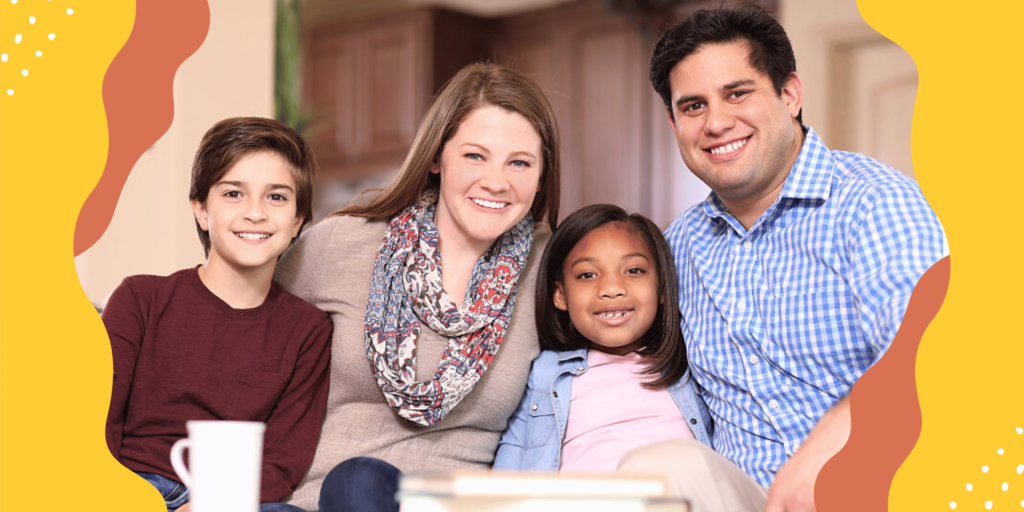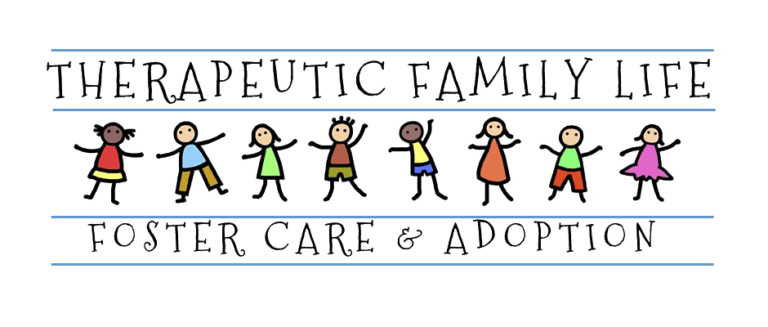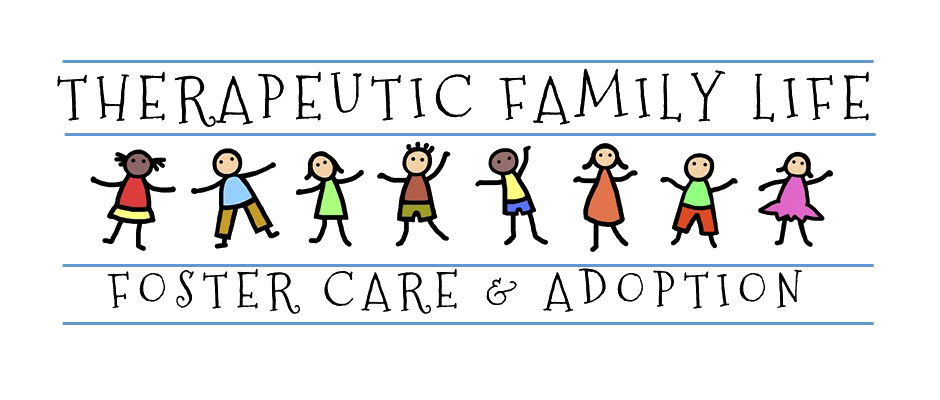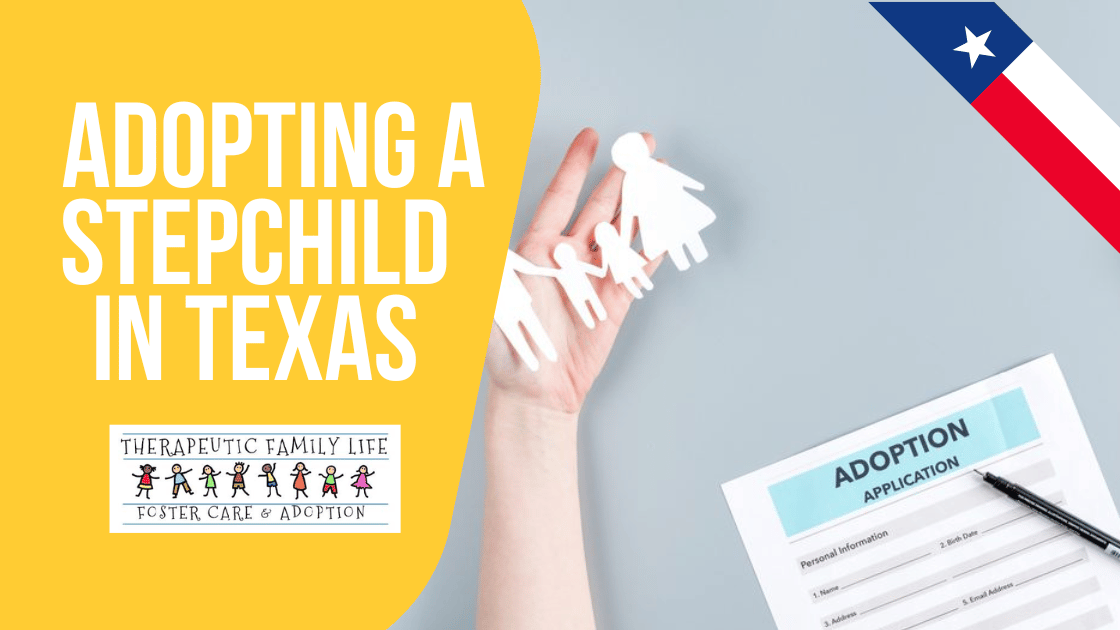Adoption is one of the kindest, most selfless acts you can do. However, if you’re considering it, you’re likely curious about the best age to adopt a child. When it comes to answering that question, there’s no one-size-fits-all answer. Instead, determining the best age to adopt depends on your current lifestyle, future family goals, and emotional readiness.
Adopting a child (regardless of your age) will change both of your lives forever. Gleaning insights about the adoption process and hearing real-life stories from adoptive parents in Texas can be illuminating. Our Therapeutic Family Life team is proud to have been a part of many life-changing adoptions and continues to serve as a key resource for prospective adoptive parents at every stage of the process.
In this blog, we’ll explore what you need to know about adopting a child at the different stages of your life and how life-changing it can be from the Houston residents who’ve already walked this path.
Factors to Consider When Deciding the Best Age to Adopt a Child
Just like with the birth of a child, adoption changes everything about your family’s dynamics. For the child, they have entered into a loving, supportive home. As a parent, adoption usually brings a fresh perspective.
Let’s explore the different factors to consider when deciding the best age to adopt:
Physical and Emotional Readiness
The decision to have a child is not one taken lightly, regardless of whether you’re looking to adopt as a single parent or as part of a couple. One of the factors you should consider, when determining the best age to adopt should be your physical and emotional readiness.
While there is no one-size-fits-all answer, the younger you are, the more challenges you may face when it comes to emotional readiness. How do you handle conflict? How do you cope with stress, arguments, and situations outside of your control? Of course, you should also determine your physical readiness. For prospective adoptive parents who are older, do you have the energy levels to cope with sleepless nights or to chase a toddler around?
Understanding where you are emotionally and physically can help you determine if adoption is right for you, and further, which age you may prefer to adopt. For those in their 20s, adopting a baby or toddler may be ideal, but for those in their 40s, adopting a tween may be more conducive to their lifestyle.
Lifestyle and Personal Goals
Likewise, consider your lifestyle and personal goals. If you’re younger, there may still be things you want to pursue, including travel, career opportunities, and spending time with friends. These things will change drastically when you have a child, especially when it comes to finances. Ask yourself, do you have the financial stability to adopt and raise a child, and if so, are you okay with that money being redistributed to them instead of on unnecessary luxuries?
Again, there’s no wrong answer. You will have a life and identity outside of child-rearing, but understanding the sacrifices that may be needed and how they will affect your long-term personal goals and lifestyle now – and potentially moving forward – is critical.
Benefits of Adopting at Different Ages
Here are the pros and cons of adopting at different ages:
Adopting in Your 20s or 30s

Most people start their parenting journey in their 20s and 30s and the same is true for those wishing to move forward with adoption.
Pros:
Parenting in your 20s and 30s has a lot of benefits, especially when it comes to long-term family goals. In general, most Texas adoptions take 1-2 years to complete, so for younger couples looking to extend their family and raise children closer in age, adoption offers many viable options. Furthermore, people in their 20s and 30s are still considered to have high energy levels and more active lifestyles, which could be beneficial for young adoptive children who eventually want to join clubs and extracurricular activities.
Cons:
Of course, there are also cons to adopting a child in your 20s and 30s, with the biggest being financial instability. Many Houston residents of this age are still climbing the ladder of success and finding their way in the world. As such, your work or education schedule may pose challenges to your child-rearing capability. Furthermore, the financial stress of, perhaps, living paycheck to paycheck could lead to emotional challenges that those in their 20s and 30s may not have the emotional maturity to deal with healthily.
Adopting in Your 40s and 50s:

It’s also true that many of today’s parents are starting their parenting journey later in life. The average age of women giving birth in the United States is now 30 – the highest it’s ever been on record. This median age takes into account those older than 30, too.
In short, if you decide to pursue adoption in your 40s, you’re not too unlike many people in the country already.
Pros:
Adopting in your 40s and 50s has financial benefits. At this point in life, you’re typically already settled in your career, so you have more financial security than those younger than you.
Furthermore, because you have more life experience stemming from complex family dynamics, relationships, work, and personal tragedies, you’re also more emotionally mature. The result of these cumulative life experiences is more patience, better communication skills, and the ability to see situations from someone else’s perspective – all traits that are necessary for the child-rearing relationship.
Cons:
However, with age, also comes the possibility of a greater generational gap with your adoptive child. Millennials, for example, who are now in their 40s, often have difficulty communicating their anxieties to their parents because of this generational gap. While Millennials are more open about their mental health struggles, their parents (usually Generation X or Baby Boomers) weren’t, leading to a conflict about what should be openly discussed and what shouldn’t. This point raises a potential issue for adoptive parents in their 40s and 50s, who may not easily understand the needs and/or struggles of a child in Generation Z, Alpha, or younger.
Also, physically, parents in their 40s and 50s may not have as much energy to care for a baby or younger child compared to their younger counterparts.
Adopting in Later Years (50s and Beyond)

Though it might be less common, there are plenty of Houston residents in their 50s and older interested in adopting a child.
Pros:
The struggles of financial security and discovering who you are, are, generally, no longer relevant for adoptive parents in their 50s and older. You’ve been there and done that, which means you have more to offer a child in terms of financial security and wisdom. The ability to look at problems logically, as opposed to emotionally, can help your child navigate complex situations and emotions easily.
Cons:
When it comes to cons, however, the biggest has to do with advancing age. The older you get, the more you have to consider in terms of potential health issues, retirement, and long-term caregiving. If something happens to you and you are too sick to continue caring for your adoptive child, what will you do and where will they go? Unlike parents in their 20s and 30s who may have the help of their parents, those 50 and beyond have a smaller village. Considerations like these have to be made.
Adoption in Texas: Age-Related Considerations
Here are some other age-related considerations to take into account if you want to pursue adoption in Texas:
Texas Adoption Laws
While there is no ideal age limit to start your parenting journey, there are laws you must adhere to when it comes to adoption in Texas.

- Be at least 21 years old
- Have references
- Complete a comprehensive home study and background checks
- Have proof of financial stability
These requirements are in addition to filling out and submitting an adoption application. Because of the nuances involved, working with a skilled foster-to-adopt agency like Therapeutic Family Life is critical, as we can provide guidance on every step of the process. Questions about what to expect in the home study? We have the answers – take it from the Cook family!
“The Cook Family has been with Therapeutic Family Life for approximately 3 years and it has been a wonderful experience, they have been able to support our needs and issues with the children as they arise. This experience has been humbling and beneficial to our family and the kids, we have grown and developed through the expert training and development techniques that have been imbedded in is from day one and reiterated throughout the years. Thank Therapeutic Family Life for being the cornerstone of excellence for my family.”
Foster to Adopt Programs
Earlier, we mentioned foster-to-adopt programs as our specialty – and it is. Fostering offers a unique opportunity to provide stability to a child in need. For example, if you wish to open your heart and home to a child while in your 50s or 60s, utilizing Therapeutic Family Life’s foster-to-adopt program may be ideal, as you can see what the adoption process would be like and how it will impact your long-term health and retirement considerations mentioned above.
Regarding our foster-to-adopt programs, we welcome you to hear from one our clients, Lorraine Bridges:
“I became a foster parent because of my sister Doralee Bridges, she was a foster parent, “Pilot Home”, for teenage girls and their babies. She informed me that good foster parents were needed. I started with girls and decided to start keeping disadvantaged neglected boys. It’s very challenging and rewarding at the same time. Some have gone to college, some have gone to jail, and some have gone on to great careers. and many other of life’s paths. Many have stayed in touch with me over the years. I grew up in a very supportive family with my mom and dad. I wanted to extend that support to the youth in my home.”
Among the many things we do, our pride is matching a child with the appropriate family based on their unique strengths. We encourage you to fill out our intake form to get started.
Choosing the Best Age for You
So, what’s the best age to adopt a child? If you’re considering adoption in Texas, here are some tips to help you answer this question:
Self-Reflection
Before you submit an adoption application, take some time for self-reflection. How many children do you want? How do you feel physically? And, if you don’t feel great physically, what can you do to increase energy levels?
In addition to the physical self-reflection, consider your emotional state, too. How do you deal with stress? What career goals do you have for yourself, and are you okay putting some of them on the back burner, if necessary? How is the relationship you share with your partner if you’re both going to pursue adoption in Texas? Answering these questions offers you a baseline to determine your parental preparedness.
However, it’s important to note that just because you may not love all of your answers, it doesn’t mean you won’t be a good parent. Parenthood changes you in every way possible, including your perspective on what’s important to you. At the end of the day, what children need most is a parent who will love them and do what they can to provide them with the best life possible. If you can do that, then there’s no reason to not pursue foster-to-adopt programs or adoption in Texas. Therapeutic Family Life can help you get there. Just take a look at this beautiful story from one of our fosters, Darnell Stokes:
“My name is Darnell Stokes and I have been fostering for 7 years. During this time, I have built some great relationships with kids, caseworkers and other foster parents. For the past 6years, I have been fostering with TFL and I am proud to say that this is by far the best agency that I have ever worked with. The staff not only supports getting your paperwork done and staying in compliance, but they are always there whenever you need them and going above and beyond to ensure that you and the kids are happy. Great special shoutout to the Arlington location, because they are awesome and some would say super heroes because they are always there no matter the time of day, and always willing to help no matter how big or small the problem maybe.”
Long-Term Considerations
Part of reflecting on your current life also requires you to think about long-term considerations. If you’re older in your late 30s to mid-40s, considering the best age to adopt a child comes with the possibility of lower energy levels, illness, and other responsibilities that could impact your child as they grow. For example, how will you navigate taking care of a school-aged child while also possibly caretaking for your elderly and aging parents?
Furthermore, are you planning on moving to a new city or state? How will that affect their education, friendships, and stability? Are you prepared to stay where you are until they graduate? As your child grows, how will you be able to tackle or support them through puberty, changing relationships, college, housing, and beyond? As you already know, being a parent is a forever role, so identifying plans of support now will prepare you in the long run and also help you gauge the best age to adopt a child, especially if you’re still in your 20s or early 30s.
Conclusion
At the end of the day, there is no one-size-fits-all answer to what is the best age to adopt a child. Rather, it depends on where you currently are in life and where you plan to be.
Regardless of age, however, opening your heart and home to a child who deserves a loving family is one of the kindest things you can do. As you’ve heard in the stories above, the power of adoption is life-changing down to the smallest detail. Therapeutic Family Life is here to help you navigate the adoption process in Texas, including starting with fostering. Contact us today to learn more. We are honored to be a trusted adoption resource in Texas for prospective adoptive families.





